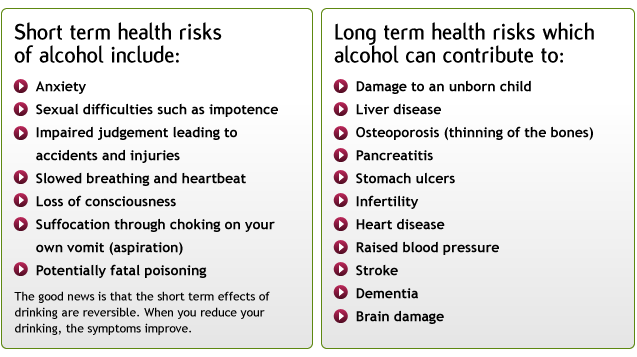rasputin
Individuals with reduced inhibitions are at an even greater chance for developing into problem drinkers. The 2 main attributes for becoming addicted to alcohol stem from having a close member of the family who is an alcoholic and having a high-risk disposition. A person with a high-risk character is one where he or she has reduced inhibitions and thrives on taking risks in most all scenarios. If a person springs from a family with one or more alcoholics and likes to take risks, they should acknowledge that they are at what is considered substantial likelihood for turning into an alcoholic.

Recent studies have ascertained that genetics plays a vital role in the development of alcoholism but the exact genes or genetic paths to dependency have not been found. At this time, it is thought that the genetic predilection towards alcohol addiction in an individual does not ensure that she or he will definitely develop into an alcoholic but instead simply means that those people feel the results of the alcohol more intensely and rapidly. In impact, the decision of familial risk is just a determination of higher chance toward the dependency and not necessarily an indicator of future alcohol addiction.
There was a gene learned about in 1990 called the DRD2 gene. This is the very first gene that has been shown to have any link toward affecting the result of alcohol addiction in people. Once more, thinking about the method this certain gene works, the person with the DRD2 gene would be believed to have a higher pull for the effects of alcohol compared with somebody without the gene but having DRD2 http://oas.samhsa.gov/ does not ensure alcohol addiction in the person.
When they are kids, the pressing desire to spot a gene responsible for alcohol addiction is due in part to the pressing need to help discover people who are at high risk. It is thought that this could prevent them from becoming alcoholics at all. It has been shown that these individuals should never take their first drink of alcohol but with children consuming alcohol at increasingly younger ages it is not typically possible to stop them prior to discovering their genetic tendency towards alcohol addiction. If this could be discovered at an early age and adolescents raised to understand that taking that initial drink for them could possibly dispatch them down the road to alcoholism, it might cut down on the number of alcoholics in the future.
victims of drunk driving
rasputin
Regardless of a hereditary predilection towards alcoholism, it is still a conscious choice to choose to consume alcohol and to get intoxicated. It has been said that the person with the familial predisposition to alcoholism is an alcoholic at birth whether he or she ever takes a drink. Taking the drink starts the disease into its active phase. The capacity to quit drinking before becoming dependent lies ultimately in the hands of the drinker.
Recent studies have discovered that genetics plays a crucial function in the development of alcohol addiction but the exact genes or genetic pathways to dependency have not been discovered. At this time, it is believed that the hereditary predisposition toward alcohol addiction in a person does not ensure that he or she will definitely turn into an alcoholic but instead just implies that those people feel the results of the alcohol more intensely and quickly. Again, thinking of the method this certain gene works, the person with the DRD2 gene would be believed to have a higher pull towards the effects of alcohol compared to somebody without the gene but having DRD2 does not ensure alcohol addiction in the person.
The urgent desire to detect a gene responsible for alcohol addiction is due in part to the pressing requirement to assist determine individuals who are at high risk when they are kids.

